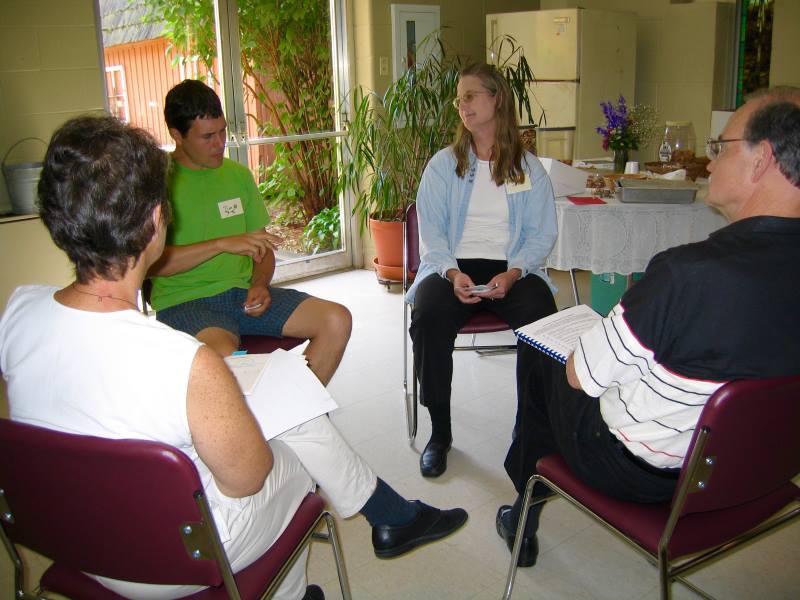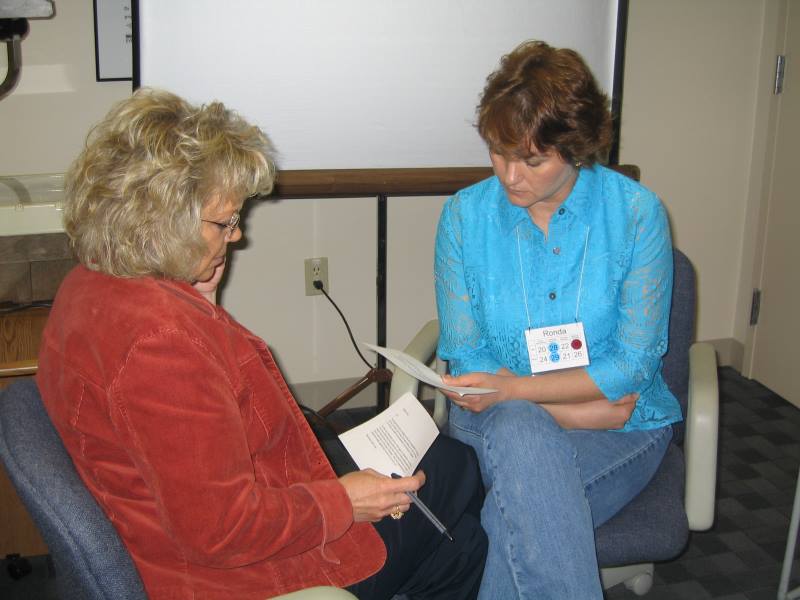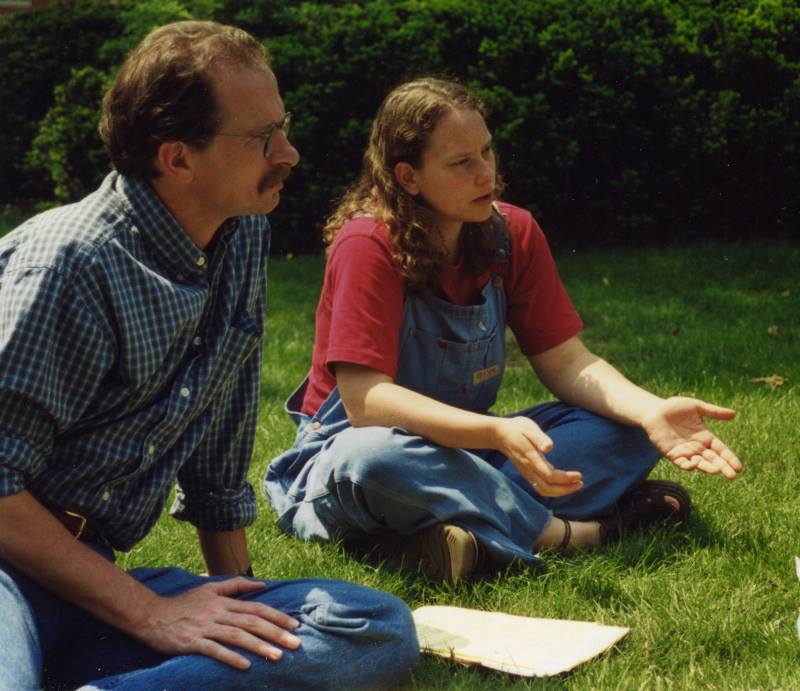WHAT IS MEDIATION?
How Can It be Useful? Why try Mediation?

Mediation is:
- Pro-Active: It involves issues and relationships that matter to the parties involved.
- Short-Term: It is usually completed in 1 or 2 extended sessions of 2+ hours
- Focused: It is focused on the present with the goal of achieving a constructive outcome or the best possible solution for the future.
- Neutral: Mediators are trained to be neutral, to control the process, but not the outcomes, and to view each participant as they are at the moment, taking no sides
- Process Oriented: It requires both parties to be present and willing to negotiate. Mediation occurs between two or more persons, usually in the same room with the mediator present

Class participants in a Mediating Interpersonal Conflict training prepare to simulate a mediation situation.
Mediation Can Be Useful if Several of the Following Conditions Exist:
- The parties know each other.
- Maintaining a relationship with the other party is important.
- The issues are complicated by a strong emotional component.
- One party feels uncomfortable confronting the other side unless someone else is present.
- The parties work or live together, or for other reasons cannot avoid the conflict.
- A decision must be reached soon.
- The parties doubt their own ability to work out the problem.
- Many people are involved or indirectly affected.
- One or both parties want to avoid formal proceedings.
Mediation is Not Appropriate if Any of the Following Conditions are True:
- A serious incident has just occurred and the parties involved are still too upset to carry on a useful conversation.
- If the referring person strongly suspects that one party intends to use the mediation to escalate the dispute (to threaten, to gather information, to look good in future proceedings).

- One party seems incapable of listening to anything the other party has to say, or seems otherwise too disturbed to negotiate a workable agreement.
- The main issue is, in the judgment of the referring party, unremediable.
- Key parties are unwilling to participate.
- The issue to be addressed stems from long entrenched patterns of individual behavior.
- The referral source finds him or herself asking questions to help a party work on his or her own personal issues; and, as a result , sees the need for making a counseling referral instead
Why Try Mediation?
- Mediation is a chance for both parties to tell their side of the story.
- It is a safe space to be heard, not blamed.
- Mediation promotes communication in a safe and confidential space.
- Mediation helps people seek agreements, not blame or revenge.
- Mediation helps people create fair and satisfying agreements.
- Mediation helps people solve their own problems, free from the advice or judgments of others.
- Mediation encourages solutions where everyone wins.
- Mediation is a chance to turn the corner to a better future.
